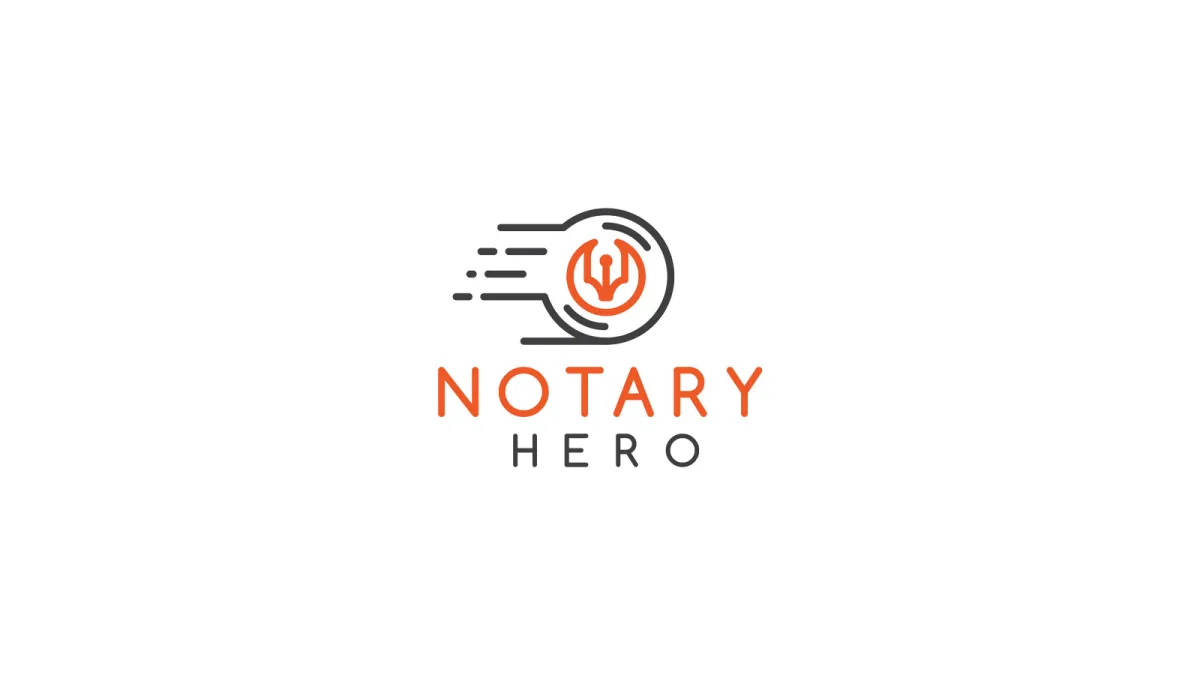Phone: (732) 863-2894

Apostille Facilitator: Your Ultimate Guide to Streamlined Services
In a world where cross-border transactions and global interactions between different countries are commonplace, the apostille service industry, ensuring the authenticity of signatures for potential clients, has become crucial. Apostilles act as seals of authenticity, ensuring that document signatures are recognized internationally without further verification by different countries. It streamlines processes for those dealing with foreign entities in different countries by certifying public documents like birth certificates or business contracts for potential clients or customers. Navigating through the initial steps to obtain an apostille can be daunting; this is where an expert apostille facilitator steps in on behalf of the client or customers, simplifying the complexities and guiding individuals and businesses alike towards meeting their international documentation needs efficiently.
Explaining the Apostille Concept
Legal Origins
The apostille process has its roots in international law. It was established by the Hague Convention of 1961. This treaty simplified legalizing documents to verify their authenticity so they are recognized internationally.
Countries that signed this convention agreed on a standardized certificate, called an apostille, for apostilles. This ensures that public documents issued in one signatory country will be accepted as valid in another signatory country without further authentication.
Document Authentication
An apostille is a form of international notarization that certifies the legitimacy of a document for use across borders. For instance, if you need your educational credentials recognized abroad for work or study, an apostille can authenticate them.
This certification is often required for court documents, patents, or notarial acts. Without it, using such documents overseas could be difficult and time-consuming due to various countries' differing legal systems.
Notarization vs. Apostillization
Understanding the difference between notarizing and apostatizing documents, including apostille services, is crucial when dealing with international affairs. Notarization involves a local authority verifying your identity and witnessing your signature on a document; however, it does not grant foreign acceptance.
Apostillization goes further by adding a validation layer through an apostille certificate from your state's designated authority (often the Secretary of State). This confirms that the document complies with international standards set out by the Hague Convention, making it acceptable abroad without needing embassy or consulate involvement.
Defining an Apostille Facilitator's Role
Liaison Duties
An apostille facilitator acts as a bridge. They connect clients with official bodies. Their role is crucial for smooth interactions. Clients often need guidance navigating government processes.
The facilitator understands complex requirements. They convey these to clients in simpler terms. This helps avoid confusion and errors during document submissions.
Document Processing
Ensuring correct processing is key for an apostille facilitator's duties. International document acceptance hinges on precision.
They check documents thoroughly before submitting them to authorities. This attention to detail ensures that all paperwork meets stringent international standards.
Streamlining Acquisition
Apostille acquisition can be daunting for many individuals due to its complexity and the specific requirements that vary from one country to another. Still, a skilled facilitator simplifies this task remarkably.
Benefits of Using Apostille Facilitator Services
Time Efficiency
Working with an apostille facilitator saves time. The process to get documents certified can be complex. An expert knows the fastest routes through this maze. They handle the steps efficiently, from notarization to government authentication.
Imagine you need an apostille for a birth certificate. Doing it alone may take weeks as you learn the ropes. An expert could shorten this to days. This is crucial if you're on a tight schedule or dealing with urgent matters.
Error Reduction
Apostille facilitators reduce errors in document handling. It's easy to miss details when preparing official papers, especially if you're unfamiliar with the requirements.
For instance, consider academic records needed abroad. A small mistake can cause big delays or rejections at foreign institutions or authorities. Professionals ensure every detail is correct before submission.
Secure Processing
Clients gain peace of mind from the secure processing of sensitive documents by using these services (provides peace of mind). Handling legal paperwork involves risks like loss and data theft.
An example would be sending company incorporation papers overseas for a new branch opening—there’s much at stake if documents are mishandled or exposed.
Document Types Requiring Apostille Services
Common Certificates
Apostille services are often needed for personal documents, such as birth certificates and diplomas. These papers prove identity or qualifications across borders.
For instance, if you're moving abroad, your new country might ask for an apostilled birth certificate to confirm citizenship. Alternatively, a job overseas may require an apostilled diploma to verify your education.
Corporate Papers
Businesses also use apostilles for their official records. Documents like articles of incorporation need verification, too. This proves a company's legitimacy in different countries.
Imagine a business expanding internationally. It will likely need its corporate documents apostilled to establish foreign operations legally.
Uncommon Needs
Some less-known documents also require apostilles:
Patents: When inventors want international protection for their work.
Court orders: If legal decisions must be recognized elsewhere.
These examples show that various situations call for this service beyond the typical needs.
The Apostille Process with a Facilitator
Document Preparation
An apostille facilitator simplifies the complex process of document authentication. First, they help prepare your documents correctly, which is crucial because mistakes can cause delays. Then, a facilitator checks for proper signatures and ensures all necessary information is present.
They guide you through each requirement. For example, some documents might need notarization before the apostille process begins. With their expertise, facilitators ensure every detail meets specific standards set by government agencies.
Once ready, they submit your documents on your behalf. This saves time and reduces stress for clients unfamiliar with the procedure or with tight schedules.
Government Interaction
Facilitators act as intermediaries between clients and government officials during the apostille process. They know exactly where to go and whom to speak with at agencies like the Secretary of State's office.
Their experience allows them to navigate bureaucratic hurdles efficiently. If issues arise, a seasoned facilitator knows how to resolve them quickly without compromising the authenticity of your documents.
Essentially, these professionals manage all communications with official bodies issuing an apostille certification.
Tracking & Delivery
After submission, tracking becomes essential to ensure everything runs smoothly until you receive your apostilled documents. An adept facilitator provides regular updates on the status of your application so you're never left wondering what's happening behind closed doors.
When completed successfully, they arrange secure delivery back to you or forward it directly as needed—for instance, if it’s part of an international transaction requiring immediate attention once authenticated.
This service adds another layer of convenience since clients do not have to deal with postal services themselves or worry about potential loss or damage en route.
Cost and Pricing Strategies for Apostille Services
Standard Fees
The cost of obtaining an apostille can vary. Different document types may have different fees attached to them. For example, personal documents like birth certificates might cost less than corporate documents due to the complexity and level of verification required.
A breakdown of standard State Government fees is as follows:
Personal Documents: $20 - $50 per document
Educational Documents: $40 - $70 per document
Corporate Documents: $100 - $200 per document
These prices are indicative and subject to change based on individual facilitator pricing strategies.
Expedited services come at a higher price point. This option is valuable when time is critical. The additional costs reflect the urgency and increased effort to process your request quickly.
Expedited Options
Choosing expedited service means your documents get processed faster than the standard timeframe. An apostille facilitator might offer several tiers:
24-hour service
48-hour service
One-week service
Each tier will increase in cost respectively, sometimes doubling or tripling the base fee for same-day processing.
For instance, if a regular order costs $50, expedited options could be priced as:
24-Hour Service: +$50 (totaling $220)
48-Hour Service: +$30 (totaling $180)
One-week Service: +$20 (totaling $170)
Remember that these are premium services designed for urgent needs.
Additional Charges
When working with an apostille facilitator, you should be aware of potential additional charges that may apply:
Courier fees for sending documents back and forth.
Notarization fees if your documents require notarization before they can receive an apostille.
Translation services if your documents need translating into another language.
Some providers offer discounts such as bulk processing rates or loyalty discounts for repeat customers, which can help mitigate these extra costs.
Discounts available might include:
Bulk Processing Rate: Reduced fee per document when processing multiple items simultaneously.
Loyalty Discount: A percentage off future orders for returning customers.
Ask about hidden fees or potential savings opportunities before committing to a particular service provider's offering.
Training and Career Opportunities as an Apostille Agent
Becoming Certified
Specific requirements must be met to start a career as an apostille agent. One does not need a college degree, but having a background in law or business can help. Most importantly, one should understand the Hague Apostille Convention and the document certification process.
Training programs that cover these topics thoroughly are available. They often include:
Legal terminology
International document types
Certification procedures
Customer service skills
Certifications can give you credibility and improve your job prospects. Some organizations offer training courses followed by exams to certify apostille agents.
Job Demand
The demand for skilled apostille facilitators is rising due to increased global transactions. Businesses and individuals frequently require documents to be authenticated by apostille services for international use.
Growth potential in this career is linked with globalization trends. As more companies go global, they'll need documents certified regularly, creating ongoing opportunities for trained agents.
Opportunities vary by location but tend to cluster around urban centers with diverse populations or where international business has a strong presence.
How Apostille Facilitators Support Immigration Services
Visa Expeditions
Apostille facilitators play a crucial role in speeding up visa applications. They authenticate documents needed for the process, including birth certificates, marriage licenses, and police clearances. Ensuring these documents are recognized internationally helps applicants avoid delays.
These professionals understand the urgency of immigration timelines. They work efficiently to get the paperwork processed quickly. Imagine you're moving abroad for a job and need your credentials verified fast with apostille services near me. An apostille facilitator can be the key to keeping your plans on track.
Record Assistance
Educational and employment records are vital when immigrating. Apostille facilitators assist by certifying these documents' authenticity. For students seeking to study abroad or professionals pursuing overseas careers, apostille services near me are indispensable.
Their expertise includes verifying diplomas, transcripts, and professional qualifications. A student's dream university might require authenticated academic records before admission is granted; an apostille facilitator ensures that the requirement is fulfilled.
Collaborative Efforts
Working with immigration lawyers and consultants, apostille agents form a support network for immigrants navigating complex legal systems.
Bullet list:
Coordinate with legal experts
Streamline document submission processes
Provide timely updates on authentication status
Their collaboration ensures all necessary paperwork meets legal standards across borders—critical when dealing with various countries' regulations. For example, if a foreign government changes documentation requirements, an apostille agent will adapt swiftly to comply with new rules.
Choosing the Right Apostille Facilitator
Reliability Criteria
Finding a trustworthy apostille facilitator is key when you need to authenticate documents for international use. Reliability is a cornerstone of this process. To gauge it, start by checking their experience in the field. A seasoned facilitator will have handled many types of documents and situations.
Next, look into their operational procedures. They should explain how they manage your documents from receipt through delivery. This includes secure handling and timely processing. Reliable facilitators ensure that your sensitive information stays protected throughout.
Conclusion and Next Steps in Apostille Services
Navigating the complexities of apostille certification can feel like a maze. You've seen how an apostille facilitator simplifies this process, transforming a potential headache into a walk in the park. With their expertise, you dodge common pitfalls and ensure your documents are globally recognized without breaking a sweat. Remember that the right facilitator is your passport to peace of mind, whether you're eyeing overseas opportunities or dealing with foreign entities.
Ready to take the plunge? Don't let paperwork hold you back. Reach out to a seasoned apostille agent and kickstart your international endeavors today. They're the bridge between you and your global ambitions. So go ahead, make that call, and watch as borders become mere lines on a map, not barriers to your success.
Frequently Asked Questions
What is an Apostille facilitator?
An Apostille facilitator is a professional who helps streamline the process of certifying documents for international use under the Hague Apostille Convention.
Why should I use an Apostille facilitator service?
Using an Apostille facilitator can save you time and hassle by ensuring your documents are processed correctly and efficiently for international recognition.
What types of documents often need an apostille?
Common documents requiring apostilles include birth certificates, marriage licenses, court orders, and educational diplomas when used internationally.
Can an apostille facilitator help with immigration paperwork?
Yes, they often assist with authenticating personal documents needed for visa applications or residency permits abroad.
How do I choose the right apostille service provider?
Look for experienced providers with positive reviews that clearly outline their process and fees to ensure transparency and reliability.
Is training required to become an apostille agent?
Yes, becoming proficient as an agent typically involves specific training in document authentication procedures and understanding international legal requirements.
Are there fixed costs for obtaining an apostilled document?
No, costs can vary based on the type of document, urgency, and individual service pricing strategies. Always ask for a clear breakdown of fees upfront.

Schedule an appointment

